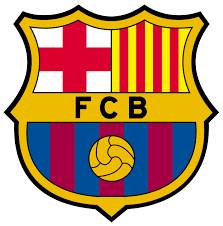FC Barcelona: A Legacy of Football Excellence
FC Barcelona, one of the most iconic football clubs in the world, is known not only for its rich history and success on the field but also for its unique identity and cultural significance. Founded in 1899 by a group of Swiss, English, and Catalan footballers, Barça has become a symbol of Catalan prideand a global powerhouse in football.
A Club with a Philosophy
Barcelona’s motto, "Més que un club" (More than a club), reflects its deep connection to the Catalan region and its people. Throughout its history, Barcelona has been a symbol of resistance, particularly during the Spanish Civil War and the dictatorship of Francisco Franco, when Catalan culture was suppressed. The club’s identity is intertwined with the fight for Catalan independence and cultural recognition, making it more than just a football institution.
La Masia and Development of Talent
One of FC Barcelona’s defining characteristics is its emphasis on youth development. The club’s famed youth academy, La Masia, has produced some of the world’s greatest footballers, including Lionel Messi, Xavi Hernández, Andrés Iniesta, and Gerard Piqué. The academy’s focus on technical skill, intelligence, and teamwork aligns with the club’s signature playing style, known as tiki-taka—a possession-based, quick-passing game that emphasizes fluid movement and short, sharp passes.
La Masia’s success in producing world-class players has allowed Barcelona to maintain a steady flow of talent into the first team, reducing the club’s reliance on expensive transfers and nurturing a cohesive playing philosophy across generations.
Golden Era: The Guardiola Years
Barcelona’s modern golden era is closely associated with Pep Guardiola, a former La Masia graduate and manager who took over the team in 2008. Under Guardiola, Barcelona dominated world football, winning three La Liga titles, two UEFA Champions League titles, and two Copa del Rey titles in just four years. Guardiola’s team, featuring players like Messi, Iniesta, Xavi, and Piqué, was considered one of the greatest in history.
The 2009 season, in particular, is remembered for Barça’s unprecedented achievement of winning six trophies in a calendar year, including La Liga, Copa del Rey, Champions League, Spanish Super Cup, UEFA Super Cup, and FIFA Club World Cup.
The Messi Era
The era of Lionel Messi, who spent over 20 years at the club, further elevated Barcelona to new heights. Messi became the club’s all-time leading scorer, surpassing 600 goals, and helped Barça win 10 La Liga titles, 7 Copa del Rey titles, and 4 Champions League titles. His individual brilliance, combined with the collective talent around him, made Barcelona one of the most feared teams in the world.
Messi’s departure in 2021 due to the club’s financial troubles marked the end of an era, but his influence on the club remains eternal.
Financial Troubles and Rebuilding
In recent years, Barcelona has faced significant financial challenges, largely due to mismanagement and the economic impact of the COVID-19 pandemic. These difficulties led to the departure of key players, including Messi, and a focus on rebuilding the squad with young talent. Despite these setbacks, the club remains competitive in La Liga and European competitions, with hopes of returning to its former glory.
Cultural and Global Impact
FC Barcelona’s influence extends beyond the pitch. With a massive global fan base, Barça has become a cultural institution that represents excellence, creativity, and resilience. The club’s home, the Camp Nou, is one of the largest stadiums in Europe, drawing millions of fans from around the world each year. Barcelona’s style of play and values have inspired countless young players and teams worldwide.
Conclusion
FC Barcelona is more than just a football club; it is a symbol of Catalan pride, a beacon of footballing philosophy, and a global institution. Through its commitment to youth development, beautiful football, and cultural values, Barcelona has left an indelible mark on the sport. Despite recent financial challenges, Barça’s legacy of excellence continues, with the promise of a bright future ahead.




No comments yet
Be the first to share your thoughts!